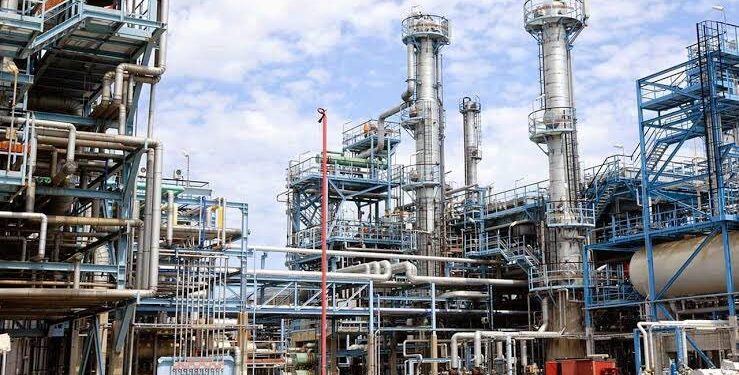The Nigerian National Petroleum Company Limited (NNPC Ltd.), has said the 150,000 barrels per day (bpd) Port Harcourt Refinery and Kaduna Refinery are undergoing a comprehensive overhaul, designed to meet world-class standards.
The company said the rehabilitation done at the 60,000 bpd Port Harcourt Refinery and Warri Refinery was not the typical Turnaround Maintenance (TAM) of the past, but a comprehensive overhaul, designed to meet global standards.
The Chief Corporate Communications Officer of NNPC Ltd., Olufemi Soneye made the clarification in a statement on Thursday while responding to former President Olusegun Obasanjo’s comments on the rehabilitation of the Port Harcourt and Warri refineries.
The former president had earlier expressed doubts about the operational status of the rehabilitated 60,000 bpd Port Harcourt refinery and Warri refinery.
Obasanjo had said that the Shell Petroleum Development Company (SPDC) advised against the Port Harcourt Refinery’s viability due to corruption, and alleged that the NNPC Ltd. misled Nigerians by claiming that its refineries are operational.
Reacting, Soneye said that a notable achievement of the NNPC Ltd. was the overhauling of the Port Harcourt and Warri refineries, while similar efforts were underway at the second Port Harcourt and Kaduna refineries.
He said the NNPC Ltd was committed to enhance and maintain the refineries to global standards for sustainable operations.
Soneye, however, invited the former President to visit the rehabilitated refineries and witness firsthand the progress made under the leadership of NNPC Limited.
“We extend an invitation to our esteemed former president to join us in this historic journey.
“His wisdom and experience are invaluable, and we deeply appreciate his insights and guidance, which will always be welcomed and cherished.
“We hold President Olusegun Obasanjo in the highest regard as a respected statesman who has made significant contributions to the growth and progress of Nigeria.
“His dedication to national development and his right to speak on matters of national importance are both deeply respected,” he said.
Highlighting NNPC’s transformation, Soneye said that it had evolved into NNPC Limited, a private entity that transitioned from being a loss-making organisation to a profit-oriented global energy leader.
Under this new model, he said the NNPC Limited had expanded beyond oil and gas to become an integrated energy company.
“Our focus is not only on harnessing traditional resources but also on developing cleaner, cheaper, and sustainable energy solutions to meet Nigeria’s growing demands.
“This progress has been driven by the visionary leadership of the NNPC Limited board and the management team led by GCEO Mele Kyari, alongside President Bola Tinubu’s transformative policies in the energy sector,” he said. (NAN)











